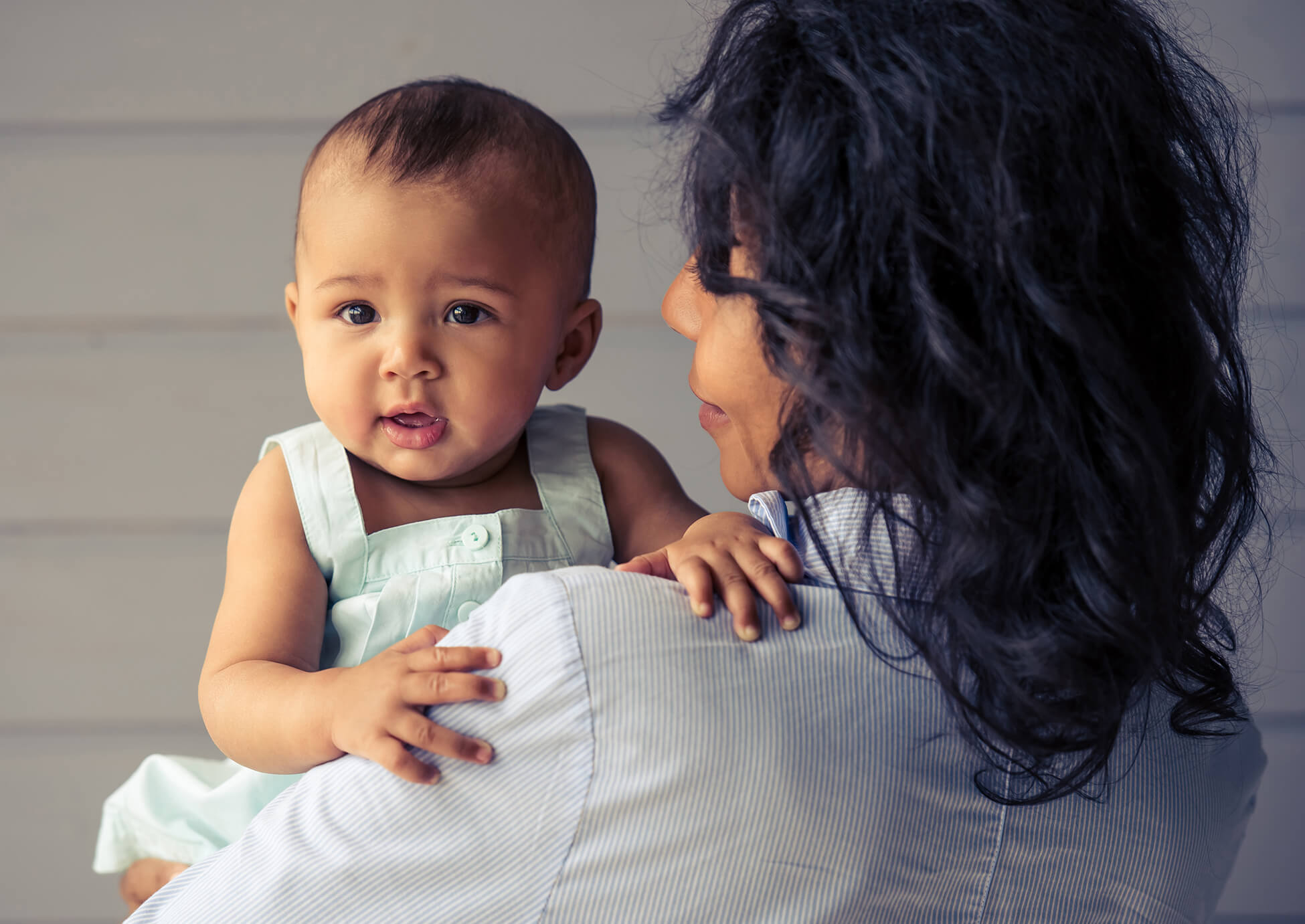Advice for New Parents
Becoming a new parent is exciting and enjoyable, but it can also be stressful. It is normal to feel overwhelmed and confused while learning how to meet your own needs, the needs of your new baby, and navigating the routines of daily life.
What happens to kids during childhood shapes who they become as adults. Children who are nurtured and supported throughout childhood are more likely to thrive and live to their fullest potential.

INFANT BONDING & ATTACHMENT
The quality of the responses and interactions between parents and their infants is a key element in the infant’s development of a secure attachment, and influences the child’s emotional, social, cognitive, and physical development.
As long as the primary caretaker satisfactorily attempts to meet his or her baby’s needs, respond to the infant’s signals, and soothes the infant at least one third of the time, a secure attachment is likely.
Video: CREATING SECURE ATTACHMENT
by Jeanne Segal, Ph.D.
Every parent needs help, especially with newborns. Reach out to your friends and family and ask for help when your infant won’t stop crying, has colic, is fussy, or has difficulty sleeping. If the infant is unresponsive or indifferent, seek professional help immediately.

NEW MOMS
Every new mother needs plenty of rest while adjusting to physical changes, breastfeeding, and developing a routine with her newborn. It is ideal for her partner or family and friends to help substantially with chores and meals for at least the first two weeks after childbirth so she can adequately attend to the infant’s needs.
9 Tips for new moms:
- Prepare meals before the baby comes and pop them in the freezer.
- Keep visitors away for the first couple of days.
- Sleep or nap when the baby sleeps.
- Ask family and friends for help!
- Try to establish a routine for you and your baby.
- Don’t stress about the housework.
- Be prepared for an emotional roller coaster.
- Enjoy this time with your new baby.
- Check in with your midwife or doctor.
Expert information and advice on parenting, including care of newborns and infant development, can help new parents develop reasonable expectations and assess whether their infant is healthy or if early intervention should be sought.

NEW DADS
Often after the birth, the focus is primarily on the mother and new baby. Scheduling some individual quality bonding time for dad and baby is key.
It’s important to know that new fathers frequently have postnatal depression and anxiety, too. It’s essential to eat well, get plenty of sleep, and address any emotions that arise.
5 Tips for new dads:
- Establish a routine. Life with a newborn can be unpredictable; creating a simple routine can create some semblance of structure.
- Accept help from family when needed.
- Take time to cuddle with your baby. You might not feel instantly bonded, but that’s okay — it takes time.
- Allow time for yourself doing something you enjoy (and make sure mom gets some time, too!)
- Work as a team. Being a new parent can be stressful, but it’s a great opportunity for you and your partner to become an even better team.
New dads can be a big help to mom by sharing the load and helping out with regular household duties:
- Help with the housework and laundry.
- Do the cooking. Cook healthy meals. You both need to stay healthy and well.
- Help out with the grocery shopping.
- Help with the older children, including school, homework, sports, bed and bath time.
POSTPARTUM DEPRESSION
“BABY BLUES”
Many mothers experience the baby blues the first few days after giving birth. If a new mother continues to feel blue for more than several days, she should contact her doctor immediately. Postpartum depression (PPD) occurs in about 20% of women and can occur any time in the first year after giving birth.
Postpartum depression can interfere with the important emotional bonding process between mother and child. Having PPD is nothing to be ashamed of! Instead, it’s an important signal that the mother needs to take her symptoms seriously, without judgment, and seek the support needs.
Postpartum psychosis in new mothers usually occurs within the first 48 hours to two weeks after childbirth and is characterized by bizarre behavior, hallucinations, delusions, and other extreme symptoms. Call your doctor immediately at the first sign of such symptoms, as there is a high risk of infanticide and suicide.
If you are thinking of hurting yourself, your infant, or someone else, call your doctor, 911 or reach for outside help immediately. National Suicide Hotline: 1-800-SUICIDE
FOR MORE POSTPARTUM DEPRESSION RESOURCES CLICK HERE
Additional New Parent Resources
ew Parent Info:
- HEALTHYCHILDREN.ORG | AMERICAN ACADEMY OF PEDIATRICS
- HELPGUIDE.ORG
- OFFICE ON WOMEN’S HEALTH, U.S. DEPT. OF HHS
For Dads:
- THE ON-LINE RESOURCE FOR EXPECTANT FATHERS AND NEW FATHERS
- POST-PARTUM DEPRESSION AMONG NEW DADS INSPIRES SUPPORT GROUPS, HELPLINES AND MORE
Post Partum Depression:
PPD resources also include hotlines (often in both English and Spanish) BABY BLUES CONNECTION which can offer information and referrals, including to support groups.
Get expert information and tips on how to comfort a baby, including when the infant won’t stop crying, has colic or is fussy and/or has difficulty sleeping:
- WWW.MAYOCLINIC.ORG/HEALTHY-BABY/ART-20043859 (Mayo Clinic)
- WWW:BABYCENTER.COM/SOOTHING-YOUR-BABY (Babycenter.com)
From Kids in the House – evidenced-based infant mental health/secure attachment; top expert help; 8,000+ videos; diverse topics addressed:
The abuse may be brief, but the trauma lasts a lifetime.
Kids’ lives and futures are on the line!
Be the voice against neglect and contribute to end child maltreatment today.
Positive Parenting Support,
At the click of a button.
Previous Section
Parenting Resource Center
Advice for New Parents
Next Section
